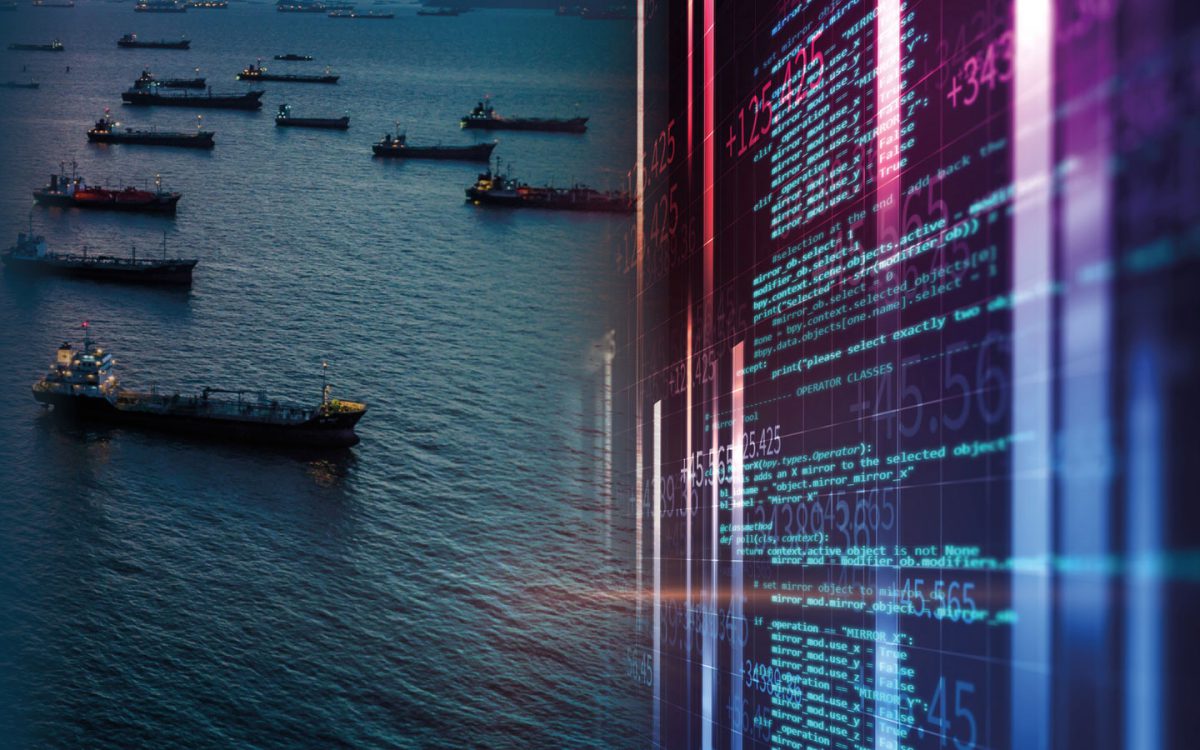INTLREG Engineering Advisory Services for Decarbonization
As a Recognized Organization (R.O.) to 45 Flag States, we are authorized carry out verification of various calculations and manuals to be kept onboard in accordance with MARPOL Annex VI as amended by MEPC.328(76).
De-carbonization being the primary focus of the present time, most of the vessel operators are facing challenges in preparing and submitting the documents for approval.
After receiving constant requests from vessel operators, we are pleased to offer advisory services in various areas of Marine De-Carbonization.
We aim to provide the marine industry with comprehensive assistance in calculations and document preparation leading to hassle free approval from Flag Administrations in the below areas.
EEDI – The Energy Efficiency Design Index
Statutory Requirement
The Energy Efficiency Design Index (EEDI) was made mandatory for new ships and the Ship Energy Efficiency Management Plan (SEEMP) for all ships at MEPC 62 (July 2011) with the adoption of amendments to MARPOL Annex VI (resolution MEPC.203(62)), by Parties to MARPOL Annex VI. This was the first legally binding climate change treaty to be adopted since the Kyoto Protocol.
The EEDI provides a specific figure for an individual ship design, expressed in grams of carbon dioxide (CO2) per ship’s capacity-mile (the smaller the EEDI the more energy efficient ship design) and is calculated by a formula based on the technical design parameters for a given ship.
Responsibility of the Vessel Operators
The Vessel Operator is responsible for preparing various technical documents and maintaining approved set of documents for each vessel.
What we offer
INTLREG Engineering Advisory Services can assist the vessel operators to evaluate and suggest improvements of vessel’s EEDI during new-build or major conversion stages.
We can evaluate and propose amendments to prepare accurate Technical File and and suggest various options for making Optimum Propulsive Efficiency Calculations.
EEXI- The Energy Efficiency Existing Ship Index
Statutory Requirement
The EEXI regulation requires the ships in service to have the same level of fuel efficiency as a new ship.
The ships of 400 GT and above, which are currently in operation in the international waters, are required to comply this requirement by the first periodical survey on or after 1st January 2023.
Responsibility of the Vessel Operators
The Vessel Operator is responsible for preparing various technical documents and maintaining approved set of documents for each vessel.
What we offer
As the process of preparing technical documents needs cooperation among owners, shipyard and engine manufactures, INTLREG Engineering Advisory Services offers assistance to to carry out preliminary and conclusive study to ascertain the current level of efficiency of a vessel and to suggest further improvements.
We assist shipping companies to evaluate ship’s optimum parameters such as Engine Power Limitation, Reference Speed etc., to carry out out various iterations needed as an input to making ‘Technical File’, calculations and documents to obtain IEE certificate.
Visit: EEXI Calculator
CII- The Carbon Intensity Indicator and SEEMP Manual
Statutory Requirement
CII represents weight of CO2 emitted in grams per carrying capacity for a nautical mile, hence is a measure of the vessel’s efficiency for carrying goods or passengers and is applicable to vessels of 5000 GT and above engaged in international voyage.
Responsibility of the Vessel Operators
Data collection needs to be done on yearly basis from the year 2019 and be reported to RO or Flag Administration. The ‘CII’ is re-calculated based on IMO DCS data for assigning a ship with a rating ranging from A to E. Depending on the ratings, for a ship that achieves a rating D for 3 successive years or a rating of E in any single year, the SEEMP manual requires major amendments to include corrective actions.
What we offer
INTLREG Engineering Advisory Services can assist the vessel operators in verifying the DCS emission reports and SEEMP on a continuous basis and shall propose options to improve the CII performances.
SEEMP Part III is the most challenging document to prepare and maintain with annual amendments as deemed necessary based on the emission records.
We analyze the trading patterns, fuel consumption rate and speed over time an comprehensive program for maintaining and improving the performance shall delivered to the vessel operators.
Associated Services
Our team shall assist you with simple to complex solutions for obtaining an optimum set of parameters depending on the customer’s budgetary requirements. These solutions may involve re-evaluation of parameters such as Engine Power, Waste Heat Recovery System, Propeller Modification, and Optimum Trim/Draught/DWT, Hull Air Lubrication, Wind Assistance, Bulbous Bow Modification etc.
Some of the solutions such as Engine Power Limitation, installation of Energy Saving Devices etc. are rather direct ones whereas other solutions may require complex computations or model tests.
We encourage you to contact us on the below email for an optimum solution that provides the most economical solution your vessels.
The below mentioned information shall be forwarded to us for preliminary study.
General Details
- Vessel Registry Details
- Principal Particulars
- General Arrangement Plan
- Capacity Plan
- Machinery Layout Plan
- Stability Booklet/ Loading Manual
Machinery/ Fuel Consumption Details
- Main Engine(s) Information
- Auxiliary Engine(s) Information
- Propeller Information and Drawings
- Power Prediction Graph (Power v/s Speed and Power v/s RPM)
- Fuel Oil Details
Additional Features of the vessel (if fitted)
- Shaft Generator Details
- Main Engine Innovative Technologies
- Auxiliary Engine Innovative Technologies
- Technical/Regulatory Limitation of Capacity
- Ice Class Notation (if assigned)
- Details of Cranes
Performance Analysis (if carried out/fitted)
- Model Test Data or CFD Simulation data and its validation
- Trim Optimization Data
- Weather Routing Data
- Hull Retrofit details (Eg. Bulbous Bow or any other modifications)
- Hull Coating
- Rotor Sails
- Kites/ Wing Sails
Data from the vessel (IMO DCS)
- Fuel type and consumption data (metric tonnes) for a calendar year
- Total Distance Sailed with main propulsion in the calendar year
- Sailing Hours

